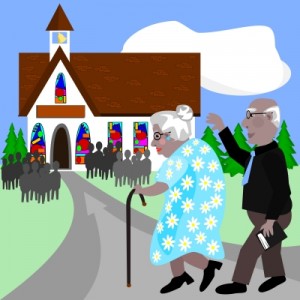Inevitably you get to that point in life where you start thinking about retirement. How can’t you? The financial services media bombards you with scary ads. Maybe you have a bad day at work and you start thinking about how things might change. Maybe it just sneaks up on you and you find yourself a little older than you imagined!
Well, my “moment” came a couple years ago and since that time I’ve been doing a lot of reading and research and this blog is the culmination. So what have I learned?
Retirement is different than I thought
First, retirement is a lot different than I thought. I always thought of retirement as an “end.” It was the end of working and the end of getting up early. It was the end of deadlines and pressure. All those things I didn’’t like about life would “end.”
My thinking now has completely changed. I think of retirement as the beginning of all kinds of things rather than an “end”.
Retirement is not as hard as they make it
The financial media creats a sense of fear around retirement. Mostly this is the fear of not having enough money. Fear sells, and some fear is warranted I guess because having enough money for retirement is certainly important.
However, what I have learned is that many people seem to have successful retirements in all kinds of financial circumstances. Money is just one part of the puzzle.
Traditional retirement definition is wrong
My definition of retirement as an “end” was wrong. The traditional definition of retirement as a period of sitting back and relaxing in a rocking chair is wrong. Retirement is a change. It is just another phase of life. It can be anything you want it to be.
You need more money than you think
Even though money is only a piece of the retirement puzzle I have learned that you need more money than I thought in some areas of your retirement life. Think health care as the biggest example.
You need less Money than you think
In some areas of retirement you may need less money than I thought. This is mostly because of the flexibility that retirement may provide. Think housing alternatives, transportation alternatives, travel options, and many others.
Retirement presents many different possibilities
Retirement is about possibilities – many more than I originally imagined.
We’ll still work
Work is another area where retirement is not an “end” for most of us. Some of us will work because we have to and some because we want to, but either way it is good for us!
You need a money plan in retirement. But…
We need to make and stick to a money plan in retirement, but money doesn’t need to dominate our retirement. Other plans may be as important or more important.
It is more important to plan for what?
It is more important to plan around what is important to you. What do you want to do with yourself? What do you enjoy? You will still have goals, they are just different.
I don’t really want to retire
So, what have I personally learned so far? My plan is still evolving but right now I’d have to say I don’t really want to retire, at least not in the traditional sense. I definitely want to do different things and have different goals. But the key is I want to ““do” and I do still have goals. That doesn’t change.
So what have you learned so far?
Until next time…

